There is nothing more exciting than the idea of making a living off of music production.
Whether that means touring with an artist project, releasing on your favorite labels, or working behind the scenes, you’d love nothing more than to (at some point) ditch your soul-crushing 9-5 for a career in music.
If you’re trying to make music while maintaining a full-time job, I don’t need to tell you how difficult it can be.
It flat-out sucks.
You want nothing more than to invest time into your passion for music, but your circumstances are holding you back.
Finding the time and energy to work on music is a tough task, especially for those with demanding jobs and a family to support.
With that, let me share the best advice from our podcast guests (KRANE, Said the Sky, and Noah Neiman) and myself on how to find more time for your creative passion and increase your overall odds of success in the music industry.
In the first section, we’ll discuss how to find more time and energy for music, how to know if you’re cut out for a music career, and when to quit your 9-5 to pursue music full-time.
In the second section, we’ll discuss practical strategies and tips you can apply to optimize your time and energy for music production.
New to music production? 🧑💻
Watch our Free Masterclass on how to learn electronic music production the smart way (without months of confusion & frustration) 👇
How to find the time and energy for music
A core problem producers struggle with is finding the energy to produce after working an 8 hour day.
They work their 9-5, go to the gym, eat dinner, and they’re left feeling wiped out – they simply don’t have any energy left to focus on making music.
When producers ask for advice on this topic, I first point them to our podcast interview with KRANE.
KRANE is an incredibly successful producer who first got into production while working a full-time job in design. Within about 2 years, he was releasing music and receiving his first bookings, and not long after he made the plunge into pursuing music full time.
Here’s what he had to say about finding the “energy” to produce:
“I fell in love with it as a hobby. When I was tired, when I was done with work, and when I did want a break, making music actually recharged me. Hopping into Ableton, messing around, and making beats was fun. It was what gave a break from work.”
KRANE
For KRANE, music was his break.
It wasn’t watching Netflix, browsing Facebook, or playing video games (to the best of my understanding).
Music was how he re-charged in his spare time.

This is a simple concept, but far too many producers “dread” going into the studio, especially when they’re tired.
If you’re going to get anywhere close to your 10,000 hours in the DAW, music production should be something you look forward to doing most of the time.
As KRANE put it:
“It should be fun. Making a choice to go into music, because the failure is so high… it should be based on the fact that you’re trying to make a change in your life for the better.“
“I was waking up at 5am to make beats before I had to go to work. I was doing it on the bus, I would come home after work and staying up late and doing it because it was just really fun.“
Far too many producers treat music production as a chore.
They have lofty goals of making a career out of music, but they aren’t willing to put in the effort to make it happen.
But why is it so difficult for some people who want nothing more than to make music to actually sit down and make music?
This is a complex question to answer, and it’s highly specific to the individual (the reason why a parent with 2 kids and student loans can’t find the time to produce is different than the reason why a college student with ample free time is making no progress).
Here are KRANE’s thoughts on this concept:
“Maybe a lot of people out there feel pressured to do music cause they’re super fans and they love music and they feel “maybe I could produce music too”. I guess it would be really sad to start doing it and realize that you don’t have the energy and it is draining. And then maybe it’s not meant for you…but that being said that may be a good place to start with.”
There is a big difference between a passion for music and a passion for making music.
Think about it this way: a person might love playing video games, but that doesn’t necessarily mean they should become a video game designer.
A love for playing video games does indicate whether or not you’ll enjoy all the tasks that go into video game development, such as coding, design, art, testing, and more.
In other words, having a blast at EDC last year doesn’t mean you have the determination and grit to spend countless hours learning the fundamentals of music productions and crafting your unique sound.
You may, but you also may not.
I went to an (expensive) music school where an unfortunate number of people fit this description exactly: people who loved music but didn’t have the drive to master the craft of creating it.
As KRANE mentioned in the end of his previous quote, there isn’t a strict line between those that “are” and “aren’t” music producers: it’s something you can evolve into.
For example, I used to begrudgingly force myself to sit down and practice the piano, and now it’s one of my favorite hobbies and creative outlets.
Regardless of where your mindset is currently at, this is a critical point to reflect on.
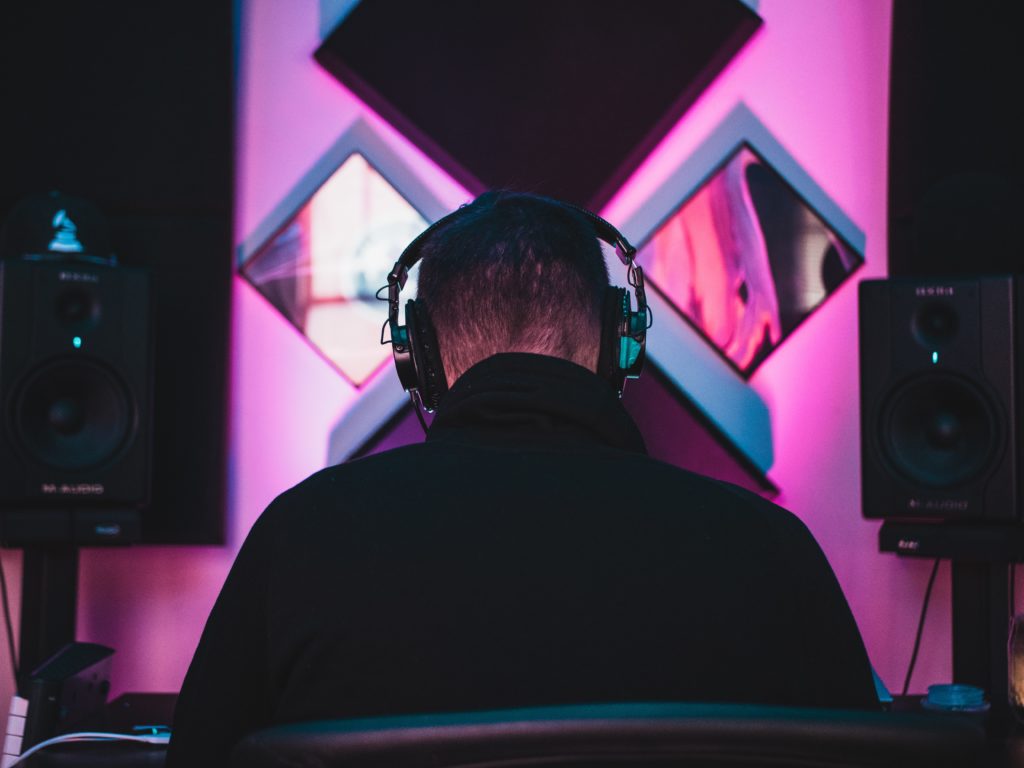
The way I like to frame this is: if no one could ever hear your music, would you continue producing?
For many, the answer is yes, because music is their creative outlet which above all else is for themselves.
For others, a deep dive into their ambitions reveals a less than welcome truth.
Whether or not you should chase a career in music is far more complicated than I’m making it, but these are nonetheless important questions to honestly ask yourself.
Quitting Your 9-5 to Chase Music Full-Time
Another question we’re regularly asked at EDMProd is whether or not someone should quit their job to pursue music full-time?

We’re careful about answering this question because, for some, there is a lot at stake with this decision. Also, it’s highly dependent on a person’s unique situation.
Given the extremely low odds of making it big in music, our answer to this question is quite conservative: “Don’t jump until you see the landing”.
It’s naive to think your passion for music is enough to guarantee your success. Plenty of people have passion, but very few produce results.
Here are KRANE’s thoughts on how he decided to quit his job to pursue music full-time:
“Two things enabled me to (go full time). First was I knew that…even if I took a year to do nothing, I could fall back on (my previous career). That felt really comforting. I had a full career (to fall back on) and that enabled me. The second thing was I set some criteria that were financially – I had some benchmarks I wanted to hit – and then emotionally – I said I’d give myself a year. I knew I wouldn’t shoot myself in the foot if I wanna go back to doing design work after that. This is what worked for me and what enabled me to do it.”
KRANE worked in design prior to moving into music. He built the connections and clout such that he was confident he could get another job in design if his music career failed.
There is a wide range of advice on this question, from the thoughtful approach of KRANE to the peculiar approach of aspiring rappers who gets face tattoos so they can’t get a 9-5 if their music career fails.
At the end of the day, you need to find what works for you.
Be truly honest with yourself and where you’re at with music.
As KRANE put it:
“The planning makes me comfortable to fail.”
He took an honest evaluation of where he was at with music and in his professional career, then built a safety net on which to fall back on.
A few years ago, I spent a year doing the bare-minimum needed to pay my bills and grew anxious as my savings stayed in the single digits. I personally needed more financially consistency in order to give myself the energy and confidence needed to effectively work on music.
While the idea of maxing out credit cards and crashing on 12th Planet’s couch sounds cool (@skrillex), you rarely hear of the 99% of producers for whom this strategy fails.
If you just started producing, you’ve got a while before you should be thinking about this decision.
If you’re playing shows, signing music to respectable labels, and pulling in some income from music, then you can holistically consider the best path forward.
For KRANE, his decision to make the leap was a methodical one:
“I’m a planner. I had an Excel spreadsheet with finances – what’s my budget, how much do I need to be making, what number of shows does that look like, and what do the fees need to be.”
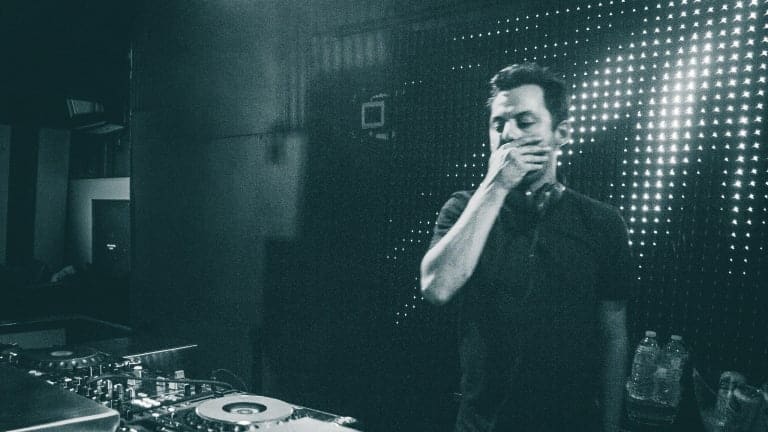
As mentioned before, find the process that works best for you.
Take in a wide range of opinions (including your parents), and be as aware and as knowledge as you can about chasing a full-time career in music.
As mentioned, remember to take everything I’ve said with a grain of salt (I’m just one human) and to keep on exploring your passion for creating music.
With that, let’s dive into six practical tips to optimize your (likely limited) time for music production.
Tip #1: Build Your Priorities
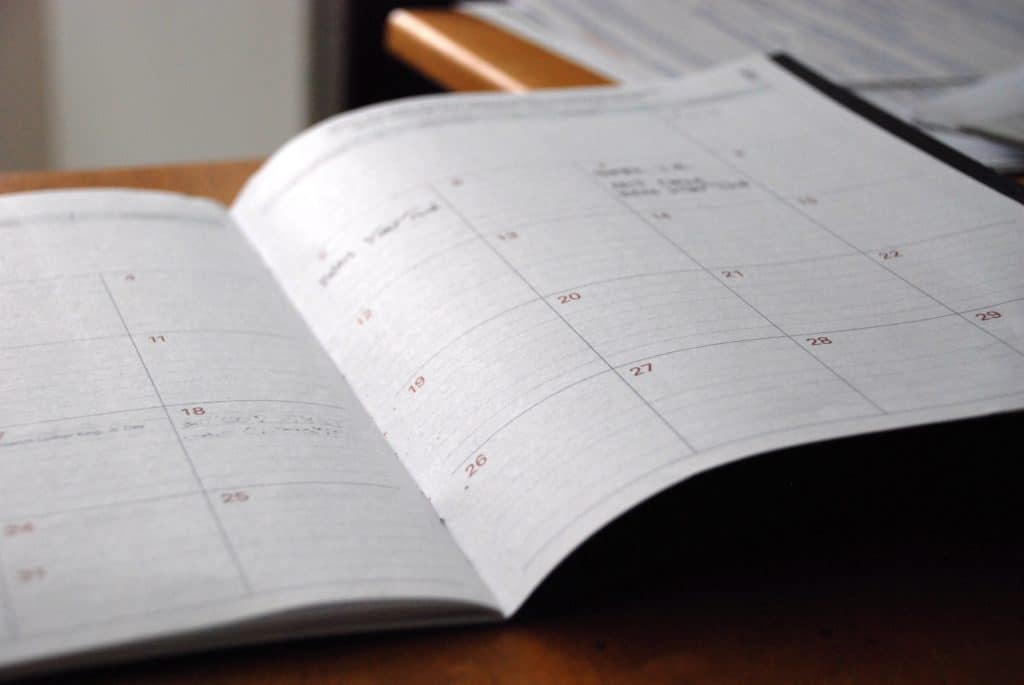
This tip is an obvious one but it’s where most people fall short.
The most successful producers we’ve worked with, above all else, made music a priority. Their work and social lives were designed in a way that optimized their time for music.
The “complicated” problem of finding time for music gets solved when making music is your first priority.
If music is your priority, you can’t afford to waste time elsewhere.
Evaluate how various aspects of your life contribute to or detract from music creation, and work to optimize areas where your current lifestyle falls short.
We all know the basics – less Netflix, less social media, less binge drinking, and less time watching YouTube – but it’s up to you to actually trim the fat from your daily routine.
Tip 2: Build Your Supporting Cast

As mentioned above, it’s essential to evaluate how various aspects of your life contribute to your goals with music.
I know far too many producers who’s jobs, significant others, friends, and housing situations detract from their creative energy.
You need a significant other that inspires you to be a better human and creator.
You need to build a supporting cast of friends that inspire you to create, not ridicule you for dreaming too big.
You need a job that enables your music in some capacity, whether that’s a part time job that gives you ample time for music, or a full-time job that gives you extra funds to invest in gear and education.
In our podcast interview with producer Said the Sky, he let his new bosses know right away that music was his number one priority.
“I told them I can’t do overtime….once I’m done with my shift I have to go home and work on music.”
As always, this concept is more complicated than I’m making it (i.e. don’t drop a friend because they don’t like your music). Regardless, I encourage you to evaluate the way your life outside of music influences you as a creator.
Which leads into my next point….
Tip 3: Keep Feeding The Well

One of the reasons producers don’t properly prioritize music production is they lack consistent inspiration.
While there’s value in pushing through when inspiration is absent, many producers fail to actively seek it out.
When you’ve been producing for a few years and get stuck in the 9-5 routine, that initial moment that inspired you to create music can get lost. When that feeling is lost, music becomes less of a priority, and months can go by without you finishing any new music.
Personally, the #1 thing that’s helped me remain productive is to continually feed my inspiration for creating.
The more immediate that feeling is, the easier it will be to prioritize time and energy for music.
For many (myself included), that means regularly attending shows.
For others, it may be a certain album, moment with a friend, or show.
Whatever it is, don’t forget to feed the fire that inspires you to create.
Tip 4: Goal Tracking
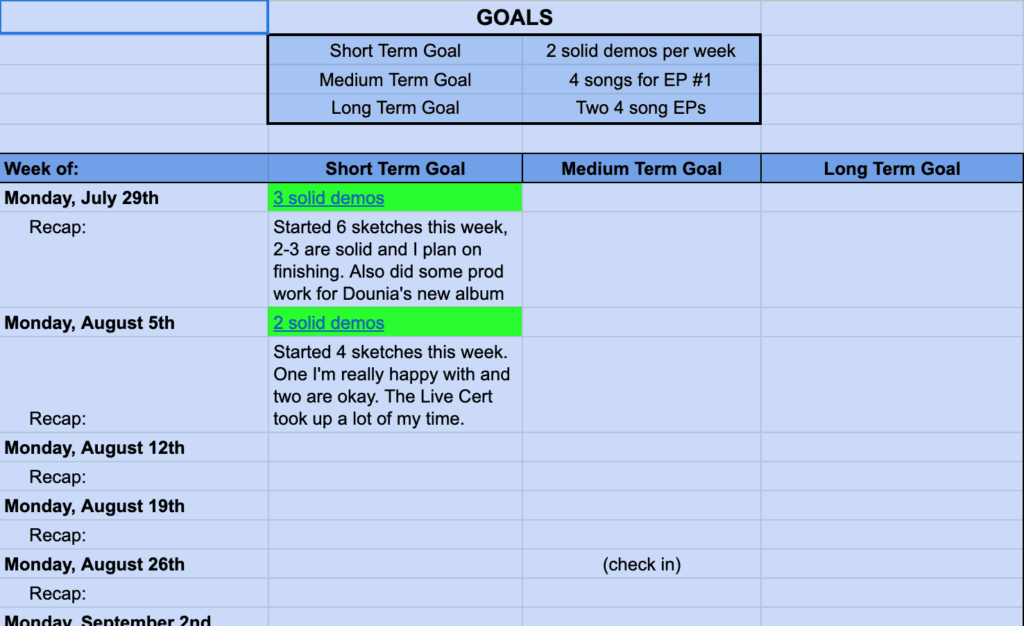
When you’re focused on stitching together time to make music, it’s easy to feel like you’re making little progress.
The best way to ensure you’re making progress is with good old-fashioned goal setting.
Proper goals keep you focused on tasks that will actually push your music career forward.
They also offer you an opportunity to reflect on how productive you’ve been of late, allowing you to objectively assess your growth as a producer.
Noah Neiman (who is a full time doctor) mentioned this in his first podcast episode with us:
“If you set up routines for yourself that save time in the studio or save time in any part of your daily life, you can be extremely productive with a very limited amount of time.”
If you need advice on goal setting, read through our article “Setting Goals as a Music Producer: 3 Steps for Success”.
Tip 5: Premium Backlog Tasks
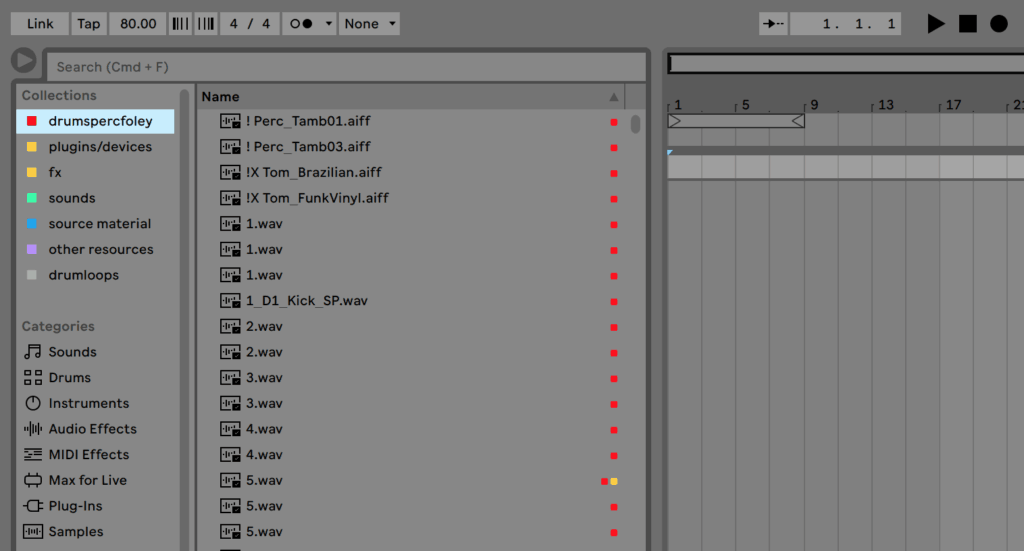
No matter who you are, there will be times when you simply don’t have enough time or energy to produce.
Perhaps you worked a 12 hour shift and are genuinely burnt out for the day.
For times like this, it’s crucial to have backlog tasks set up.
Backlog tasks are tasks that help you make music, without you actually making music.
These tasks fall into the category of pre-production – things you do outside of producing to optimize your time in the studio.
Sam talks about pre-production in his free e-book “The Producer’s Guide to Workflow & Creativity”, so definitely give that a read if you haven’t.
Below are some examples of quality backlog tasks:
- Organize your sample library
- Clear up space on your computer (if your storage is scarce like mine)
- Find new samples and presets
- Watch (a few, not too many) tutorials on YouTube
- Read the manuals for new plugins
- Organize your studio
- Practice writing chord progressions
- Investigate the stock instrument and effect presets in your DAW
- Practice guitar or piano (my personal favorite)
You get the idea.
Find tasks that will help when you actually sit down to make music.
Tip 6: Find Your Balance
I’ve avoided giving declarative advice in this article because you need to find a balance that works right for you.
Being fully committed to a career in music doesn’t mean you can’t have friends or hobbies. It simply means you need to be conscious of where your time is invested.
Are you an extrovert that needs to hang out with friends on Friday nights in order to recharge for a weekend of music production? Go for it.
Do you need to watch binge-watch a show once a month to unwind from constant stress? Go for it.
When I decided to commit to music full-time, I cut out most of my friends and nearly all of my hobbies.
The result?
My life became so one-dimensional that I struggled to write music for a full two months.
I took a step back, added back in friends and hobbies that contributed to my life as an artist, and then immediately got back into the flow of writing.
Moving forward, work on finding the work/life/music balance that’s right for you.
Summary
Finding ample time for music production with a full-time job is a big problem with no perfect solution, but hopefully you’ve gleaned a few tips and insights from this article.
Want to start making money from music too? Check out my guide on making money from music.
If I’ve missed any tips or you want to chat over email, you can email me directly at [email protected].
New to music production? 🧑💻
Watch our Free Masterclass on how to learn electronic music production the smart way (without months of confusion & frustration) 👇

